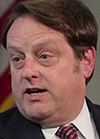
MBA Mortgage Action Alliance ‘Call to Action’ Targets GSE Refi Fee

In the wake of new directive by Fannie Mae and Freddie Mac to impose a 50 basis point “Adverse Market Refinance Fee” on most refinance mortgages, effective Sept. 1, the Mortgage Bankers Association’s grassroots advocacy arm, the Mortgage Action Alliance, issued a ‘Call to Action’ urging its 50,000 members to contact their members of Congress and the Federal Housing Finance Agency to roll back the directive.
The GSEs said the fee would address “risk management and loss forecasting resulting from COVID-19 related economic and market uncertainty.” Fannie Mae, which referred to the fee as a “Loan-Level Price Adjustment” (https://singlefamily.fanniemae.com/media/23726/display), said the fee is “in addition to any other price adjustments that are otherwise applicable to the particular transaction.” Freddie Mac, which calls the adjustment a “Market Condition Credit Fee in Price” (https://guide.freddiemac.com/app/guide/bulletin/2020-32), will assess the fee for cash-out and no cash-out refinance mortgages.
The announcements drew widespread criticism from within the real estate finance industry and a strong rebuke from MBA President and CEO Robert Broeksmit, CMB (https://www.mba.org/2020-press-releases/august/mba-statement-on-the-gses-adverse-market-refinance-fee), who said the directive undermines both Federal Reserve policy to keep rates low and the administration’s recently announced directives to support homeowners and urged FHFA to withdraw the “ill-timed, misguided directive.”

Bill Killmer
In the Call to Action (https://www.votervoice.net/MBA/Campaigns/76617/Respond), MBA Senior Vice President of Legislative and Political Affairs Bill Killmer said the GSE directive “flies in the face of the Administration’s recent executive actions urging federal agencies to take all measures within their authorities to support struggling homeowners.”
“Requiring Fannie Mae and Freddie Mac to charge a 0.5% fee on refinance mortgages they purchase will raise interest rates on families trying to make ends meet in these challenging times,” Killmer said. “This means the average consumer will be paying $1,400 more than they otherwise would have paid. Even worse, the September 1 effective date means that thousands of borrowers who did not lock in their rates could face unanticipated cost increases just days from closing.”
Killmer noted the housing market has been able to withstand many of the most severe effects of the COVID-19 pandemic. He stressed the recent refinance activity has not only helped homeowners lower their monthly payments, but it is also reducing risk to the GSEs and taxpayers.
“At a time when the Federal Reserve is purchasing $40 billion in agency [mortgage-backed securities] per month to help reduce financing costs for mortgage borrowers to support the broader economy, this action raises those costs and undermines the Federal Reserve’s policy,” Killmer said. “Meanwhile, as Congress considers providing another $1200 stimulus payment for households, FHFA just took $1,400 from any looking to refinance. This directive is bad for our nation’s homeowners and the nascent economic recovery.”
The FHFA/GSE directives drew wide condemnation across the mortgage industry. Jaret Seiberg, financial services and housing policy analyst with Cowen Washington Research Group (and a frequent speaker at MBA conferences), called the directive a “tax on housing that will expose the President to political attacks as the GSEs are still under government control. It seems counter-productive as it will reduce the benefit of refinancings, which means less money freed for other spending.” (
“This is negative for the economic recovery, negative for the housing market, negative for originators who may face losses on their pipeline and negative for servicers coping with the cost of providing forbearance,” Seiberg said. “This is positive in the short-term for Fannie Mae and Freddie Mac as they will collect an extra 50 basis point on essentially every refinancing. The long-term concern is whether FHFA’s move reflects a concern with potential credit losses the enterprises could face once forbearance ends and borrowers have to resume repaying their mortgages.”
Matthew Graham, a columnist with MBS Live, an industry publication (https://app.mbslive.net/), described the FHFA/GSE directives as a “cash grab.”
“Granted, it’s not technically a tax, and it wasn’t probably even intended to hit the pocketbooks of the American homeowner, but that’s unfortunately exactly what it will do,” Graham wrote. “In simpler terms, FHFA is saying to lenders ‘I think some of your money should be our money instead.’ Rest assured, this fee would never have been considered if rates were higher and lender margins were thinner.”
Graham said homeowners will complain—but so will mortgage lenders. “Lenders have tons of loans that are already locked with expiration dates after September 1,” he said. “They are going to have to eat 50 bps on all those loans. For big lenders, this is tens of millions of dollars in instantly vaporized profit.”
Greg McBride, Chief Financial Analyst with Bankrate.com, New York, said the FHFA/GSE directive “doesn’t pass the smell test.”
“The irony is striking – the Federal Reserve is effectively printing money to buy government guaranteed mortgage backed securities in order to keep markets functioning, drive down mortgage rates, facilitate refinancing and put monthly savings into consumers’ pockets,” McBride said. “And now FHFA wants to grab that savings from the consumer and put it into Fannie and Freddie’s coffers. Make no mistake, the consumer is going to end up paying this fee.”
McBride said the Federal Reserve should “immediately stop buying Fannie and Freddie issued mortgage-backed securities” and FHFA “should rescind this announcement and not be a roadblock to homeowners reducing their monthly mortgage payments.”
Killmer said in the days ahead, MBA will work with its financial services and housing industry colleagues and Congress to roll back this deeply misguided FHFA policy. “This directive undermines both Federal Reserve policy to keep rates low, and the administration’s recently announced directives to support homeowners,” he said.
